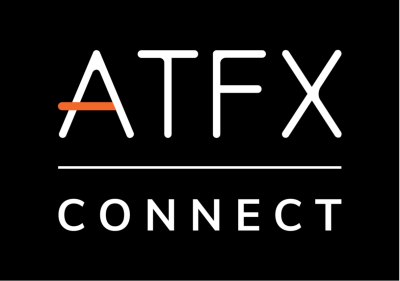TradeTech FX USA 2026
February 9 - 11, 2026
JW Marriott Marquis, Miami
2019 Day 2 Highlights
Buy-side panellists divided on importance of pre-trade analytics for FX risk mitigation
Buy Side Keynote Interview: The technology vs. risk trade off- How is increased technology and the changing role of the dealer impacting the traditional buy side DNA?
Moderator: Victoria Cumings, MD, Americas, Global FX Division, GFMA
Paul Shahied, Head of FX Trading, Fidelity Investments
Jason Fromer, Head of FICC Trading, Manulife Asset Management
Buy-side panellists at this year’s TradeTech FX USA conference offered opposing viewpoints on the importance of pre-trade analytics for risk mitigation in foreign exchange (FX) trading.
Discussing how technology is changing the way in which buy-side firms manage and mitigate risk, Paul Shahied, head of FX trading at Fidelity Investments backed the use of technology when deciding on appropriate levels of risk.
“It comes down to good, smart pre-trade analytics, to at least give the trader a visual and a clear understanding of what is two standard deviation move, intra-day for that timeframe in that currency versus what is a good estimate of risk transfer, what is that slippage?” he said.
“When you are confronted with the options, let's say a voice risk transfer, an electronic risk transfer versus something a little more passive, such as a two standard deviation move, it will become clear what the prudent decision to make is.”
On the other side of the discussion Jason Fromer, head of FICC trading at Manulife Asset Management, instead a reliance of human understanding of market conditions, particularly in the face of changing daily circumstances and market conditions.
“A lot of what it has to do with is experience and skill. We're all in the environment of Twitter now so we really have to understand and asses the market or the day that we are in. It becomes more about what is going to happen in the next two or three hours that anything else,” he commented.
“It's not about the analytics, per se, it's about what you want do, where you want to go, and how you want to make that trade work, and think about what you are going to be doing that day and laying a roadmap. It's about knowing who your counterparties are, who is good at those trades and who is he right person to use for certain currencies. You get some of that out of pre-trade analytics, but it's not the be all and end all.”
While he did recognise the importance of the technology tools available for risk mitigation, Fromer explained there was a danger of firms placing too much emphasis on pre-trade data analytics for such operations and that his firm had not taken this approach.
“There is so much data that you get paralysed by it and sometimes it's just intuition, or knowledge. We are looking to see what can add value for us but I have not found a lot yet”, he said.
Fidelity Investment’s Shaheid agreed that traders’ understand and experience does also play a vital role in risk mitigation, particularly due to the nature of FX trading conditions.
“If you are bringing up a junior trader or someone from another asset class, that is where pre-trade analytics becomes more critical; they might not be as familiar with the volatility and the moves within the market,” he commented.
Outsourcing crucial as industry shifts from best execution to smart execution
All Star Panel: From best to smart execution- How can you build a comprehensive technology workflow that goes beyond meeting your best execution obligations
Live polling and interactive audience Q&A during this session
Moderator: Andrew Busch, former Chief Market Intelligence Officer, CFTC
Michael O’Brien, Head of Global Trading, Eaton Vance
Rohan Chauhan, Vice President, Trading and Research, GIC
David Newns, Global Head of GlobalLink Execution Services, State Street
Danielle Caravetta, Director of Global Sales, Pragma Securities
As the industry shifts from meeting best execution requirements towards smarter execution processes, foreign exchange (FX) market participants have agreed that outsourcing will play a key role for both buy- and sell-side firms.
Speakers on a panel at TradeTech FX USA told delegates that the trend towards outsourcing portions of the smart execution process to specialists will become more prominent, as firms often don’t have the resources to build technology or develop the smart execution process they need in-house.
“It’s about working with vendors who specialise in things like aggregation, analytics, smart execution, and that has to be part of the evolution because it’s impossible to do everything in-house,” said Danielle Caravetta, director of global sales at Pragma Securities. “It takes too much time, too much money, and everyone is dong more with less, so you have to be smart about who you partner with. Most of the specialists are faster, cheaper and will help you get the best result with less time and less money.”
The panel added that firms looking to work with technology vendors or certain aspects of their execution processes should seek a company that will act as a partner. But the outsourcing question ultimately comes down to how bespoke or unique a firm’s need is.
“For me, it’s important to selectively outsource where you don’t have the expertise to do certain things,” Michael O’Brien, global head of trading at Eaton Vance, told delegates. “I don’t know how to code, so if someone can build something that will help me with a particular task then great. But when it comes to the execution process, you have to be extremely sensitive about who you work with. Away from execution, it’s easier to choose your partners.”
Panellists also agreed that it can be challenging to navigate the array of technology providers currently available in the market. Trust was also labelled a key aspect when choosing which technology vendor to work with, with O’Brien adding that often times vendors can “promise the world”.
“I’m not suggesting they are misleading us, but they may not completely understand our challenges,” he said.“That initial conversation ahead of partnering and moving forward is crucial because it’s about building the trust. We can talk to references and they’ll have a reputation in the marketplace, but there’s really no way of knowing if they can solve my problem. It’s an ongoing process for both sides, but it’s important that you choose carefully and take your time.”






































